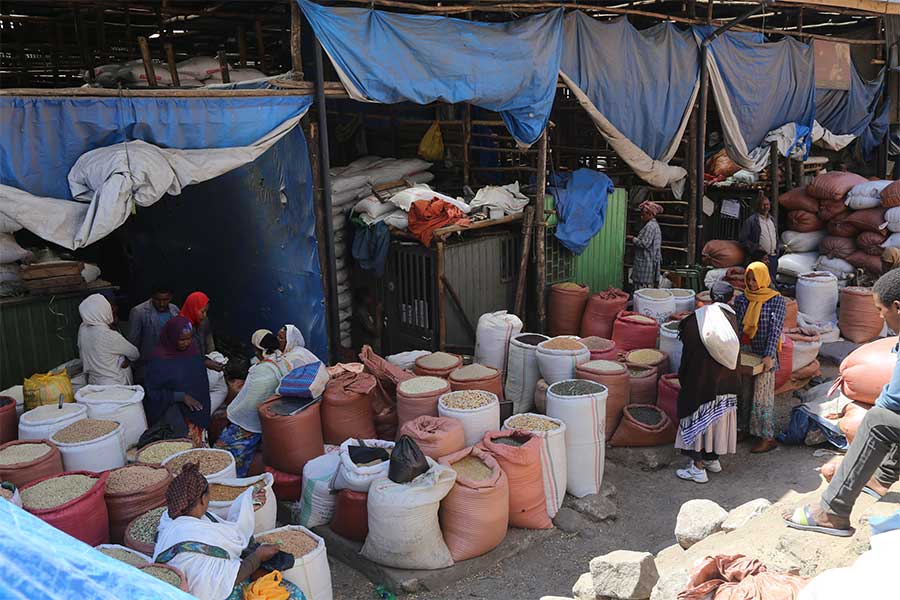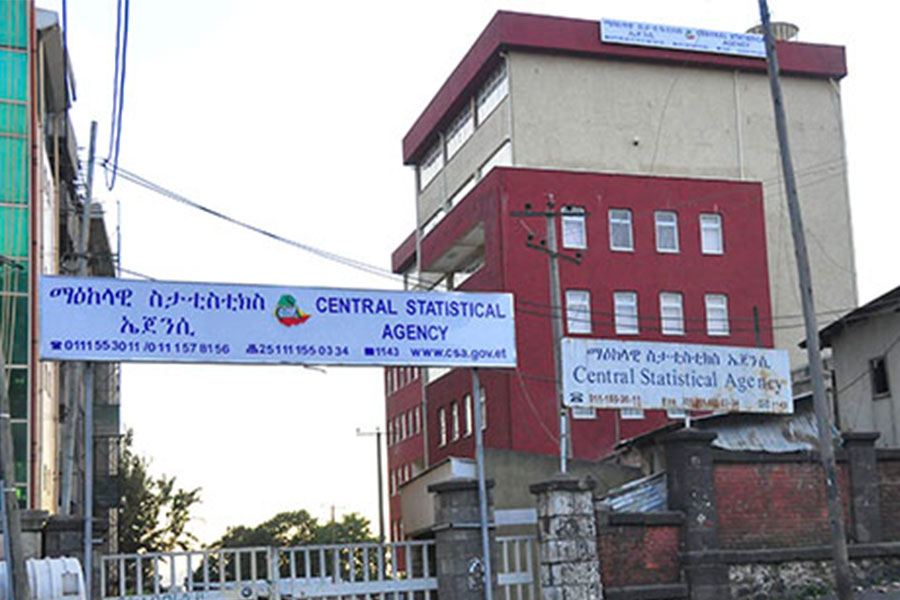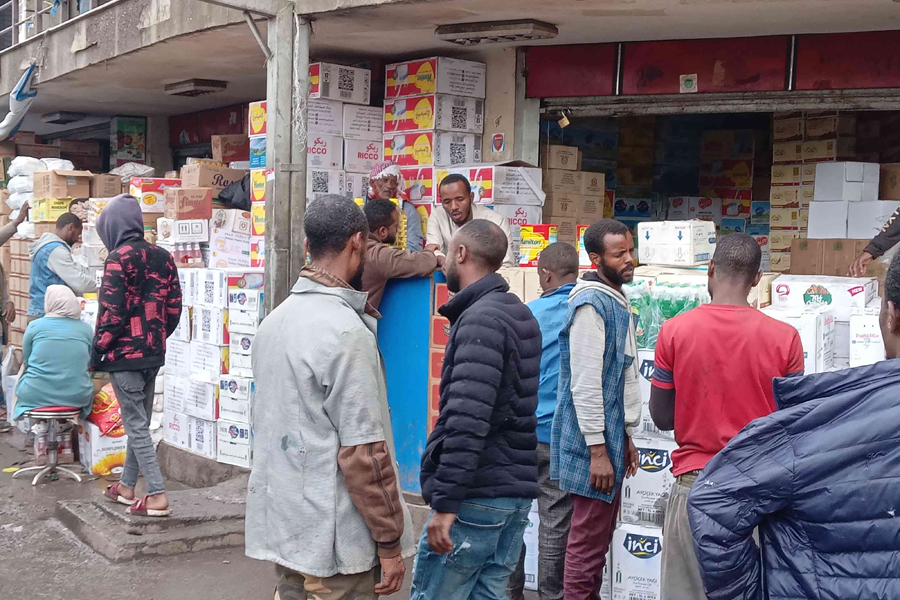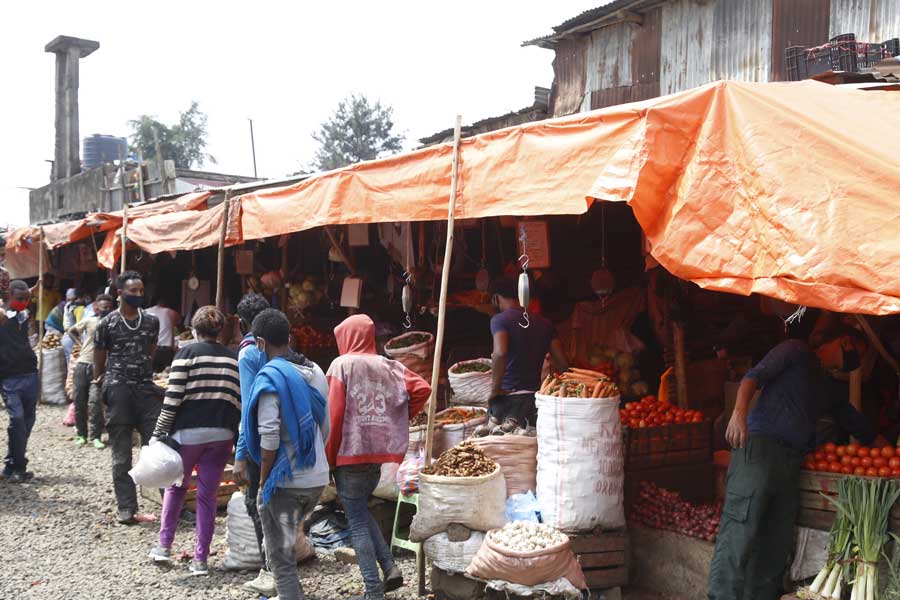
Radar | Apr 15,2024
Apr 9 , 2022
By Asseged G. Medhin
Several reforms in the economic front have been employed over the past three years. They range from liberalisation efforts to tax reform and monetary policy reorientation. However, none have shielded the economy from internal and external variables. The latter has been the impacts of COVID-19, global supply chain disruptions and commodity price volatilities. Internal failures have been resistance to reform and conflict that consumed a chunk of government spending.
Household incomes are not rising as rapidly as they should, leading to low national savings and consequently only limited capital to be deployed as investments. At the same time, tax revenues are only enough to meet the country’s needs, with little left over to finance development. Under these circumstances, deficit financing may appear to be an easy method of providing finance to expand investment and hence to be an easy way of obtaining capital for a more rapid expansion of output. If a government can persuade the central bank to create money to finance a development programme, or if the banking system freely makes loans to private investors for the finance of physical investment, the problem of expanding the country’s real assets may appear to be easily solvable.
There is no doubt that, on occasion, a monetary expansion greater than the increase in real output will introduce an element of flexibility in an economy, releasing resources for development. However, there are strict limits to the amount of development that may be fostered without creating hyper-inflation.
The less inflation there would be going forward, the moment the government pulls out from the money markets – ceasing borrowing from commercial banks through the treasury markets and the central bank. If inflation is lower, so would be consumption and more money can go into investments. More production will help the economy use its competitive land and labour advantage, more than any other in the region. The government should look for other workable strategies that will increase production and individual income of the nation.
In any economy, the monetary system operates on the assumption that a currency serves as a satisfactory medium of exchange, store of value and unit of account. If prices are stable or rising imperceptibly, citizens will find the currency less acceptable. The Birr is facing pressure as it loses its value due to the effects of low savings, weak export, deficit financing and devaluation. If we are not careful in measuring the impact and providing proper intervention, it could sweep away any wealth held by households. The increasing cost of living and the fall of household’s disposable income is shrinking by the day. These threats could mean a financial apocalypse from which many any active participant will not recover.
The impact of inflation on the daily earning capacity of citizens should be the government’s priority. Individual units of investment financed by bank credit are indeed likely to be created even in inflationary conditions. It is not the immediate products of monetary expansion that are in question; rather, it is the overall effect on the supply of money in the market where the real purchasing power of money is significantly discounted by the marginal rate of inflation over interest rate. Such a trend, at some point, will create financial crises since the real value of assets might drop as a result of latent economic growth.
As long as prices keep rising, the real value of any increase in money holdings will be eroded. This fall in the real value of money may be considered a tax on money holders. Inflationary policies, or policies which lead a government to be weak in resisting inflationary pressures, may be assessed by criteria similar to those used in assessing alternative taxation proposals. We need a wise, long-sighted and effective price adjustment intervention for our economy before the rate of inflation surpasses the capacity of absorbing shocks. The economic misalignment needs to be addressed before it creates a financial storm that bankrupts the country.
PUBLISHED ON
Apr 09,2022 [ VOL
23 , NO
1145]


Radar | Apr 15,2024

Agenda | Dec 28,2019

Fortune News | Jan 26,2019

Fortune News | Aug 04,2024

Fortune News | May 09,2020

Radar | Jan 16,2021

Covid-19 | May 01,2021

Viewpoints | Oct 08,2022

Commentaries | Aug 14,2021

Fortune News | Aug 08,2020

Photo Gallery | 170590 Views | May 06,2019

Photo Gallery | 160825 Views | Apr 26,2019

Photo Gallery | 150472 Views | Oct 06,2021

My Opinion | 136248 Views | Aug 14,2021





Dec 22 , 2024 . By TIZITA SHEWAFERAW
Charged with transforming colossal state-owned enterprises into modern and competitiv...

Aug 18 , 2024 . By AKSAH ITALO
Although predictable Yonas Zerihun's job in the ride-hailing service is not immune to...

Jul 28 , 2024 . By TIZITA SHEWAFERAW
Unhabitual, perhaps too many, Samuel Gebreyohannes, 38, used to occasionally enjoy a couple of beers at breakfast. However, he recently swit...

Jul 13 , 2024 . By AKSAH ITALO
Investors who rely on tractors, trucks, and field vehicles for commuting, transporting commodities, and f...

Oct 4 , 2025
Eyob Tekalegn (PhD) had been in the Governor's chair for only weeks when, on Septembe...

Sep 27 , 2025
Four years into an experiment with “shock therapy” in education, the national moo...

Sep 20 , 2025
Getachew Reda's return to the national stage was always going to stir attention. Once...

Sep 13 , 2025
At its launch in Nairobi two years ago, the Africa Climate Summit was billed as the f...

Oct 5 , 2025 . By NAHOM AYELE
In Meqelle, a name long associated with industrial grit and regional pride is undergo...

Oct 5 , 2025 . By BEZAWIT HULUAGER
The federal government is set to roll out a new "motor vehicle circulation tax" in th...

Oct 5 , 2025 . By NAHOM AYELE
The Bank of Abyssinia is wrestling with the loss of a prime plot of land once leased...

Oct 5 , 2025 . By BEZAWIT HULUAGER
The Customs Commission has introduced new tariffs on a wide range of imported goods i...